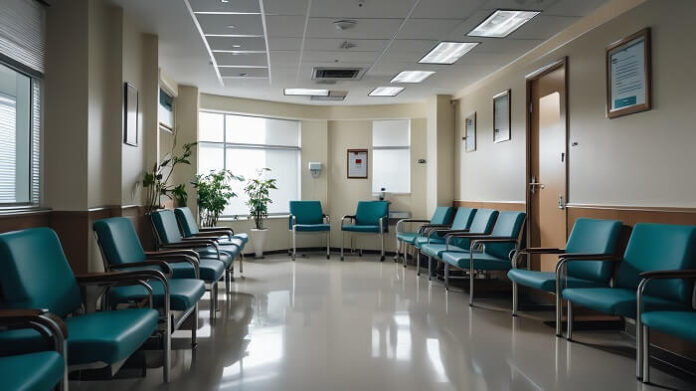Urgent care facilities have become a crucial component of the healthcare system, filling the gap between primary care and emergency room services. They offer timely treatment for a variety of medical issues that require immediate attention but are not life-threatening. With their growing popularity, it’s important to understand the diverse services these facilities provide. This guide delves into the numerous services offered at urgent care centers, helping you recognize when to seek care and what to expect during your visit.
Table of Contents
- The Role of Urgent Care Facilities in Healthcare
- A Broad Spectrum of Services
- The Advantages of Choosing Urgent Care
- Conclusion
- FAQs
The Role of Urgent Care Facilities in Healthcare
Urgent care facilities are designed to address acute medical needs, serving patients who require prompt treatment but do not have conditions severe enough to necessitate an emergency room visit. They are typically open beyond regular office hours, including evenings and weekends, which makes them a convenient option for many individuals and families. This accessibility helps reduce the burden on emergency rooms, allowing them to focus on more critical cases
Understanding the primary functions of urgent care facilities can help patients make informed decisions about their healthcare. Unlike primary care offices, which provide ongoing health management and preventive care, urgent care centers focus on treating immediate health concerns. They can handle a variety of non-life-threatening issues, allowing patients to receive timely care when they need it most.
A Look At The Services Provided By Most Urgent Care Facilities
Minor Injury Treatment
One of the most common reasons individuals visit urgent care facilities is to treat minor injuries. This includes everything from sprains and strains to cuts and abrasions. Urgent care providers are equipped to assess and manage these injuries effectively.
In cases of cuts, medical professionals will clean the wound, assess the depth and severity, and apply stitches or dressings as necessary. This is critical not only for healing but also for preventing infections. Urgent care facilities often provide the necessary evaluation and treatment for minor fractures, including splinting and casting. Patients can usually expect care without the long wait times associated with emergency rooms.
Burns are another area of focus at urgent care centers. Whether caused by scalding liquids, sun exposure, or other accidents, urgent care staff can offer appropriate treatment and pain management, as well as guidance on home care and recovery.
Management of Common Illnesses
Urgent care centers are well-equipped to handle a range of common illnesses, providing prompt treatment for conditions that can arise unexpectedly. For instance, individuals experiencing cold or flu symptoms can receive evaluations and treatment plans tailored to their needs. Healthcare providers at these facilities can recommend over-the-counter medications, home remedies, and advice to alleviate symptoms and speed recovery.
Digestive issues such as nausea, vomiting, and diarrhea are also common reasons for visits to urgent care. Medical professionals can assess the underlying cause and provide hydration solutions or medications to help patients recover quickly. Additionally, urgent care centers are often able to diagnose and treat various infections, including urinary tract infections (UTIs), ear infections, and skin infections.
Vaccination Services
Preventive care is a crucial aspect of maintaining overall health, and many urgent care facilities offer a range of vaccinations. Annual flu shots are commonly available, helping to protect individuals and communities from seasonal outbreaks. Urgent care centers also provide immunizations required for school entry or travel, such as hepatitis A and B, typhoid, and tetanus.
In addition to routine vaccinations, some urgent care facilities offer specialty vaccinations for specific populations, such as those traveling to regions where certain diseases are prevalent. This ensures that patients receive the necessary protection before their travels.
On-Site Diagnostic Testing
A significant advantage of urgent care facilities is their ability to conduct on-site diagnostic tests. Patients can often receive immediate results for several common tests, which is essential for quick diagnosis and treatment.
Many urgent care centers offer radiology services, including X-rays, to assess fractures and dislocations. This capability allows healthcare providers to evaluate injuries and recommend appropriate treatment promptly.
Urgent care centers typically have laboratories on-site for conducting tests related to common illnesses. This includes rapid tests for conditions like strep throat, flu, and COVID-19. Patients can receive results quickly, allowing healthcare providers to determine the best course of action without delay.
Pediatric Care
Urgent care facilities often cater to families, offering pediatric services designed to address the unique health needs of children. Parents can feel reassured knowing their children can receive quality care for a variety of health concerns in a child-friendly environment.
Children are particularly susceptible to accidents and illnesses, and urgent care centers provide prompt treatment for minor injuries such as cuts, scrapes, and fractures. They can also handle common pediatric illnesses, including ear infections, stomach bugs, and respiratory issues.
Many urgent care facilities offer vaccinations for children, ensuring parents can keep their little ones up to date on immunizations conveniently. Having these services available in one location makes it easier for parents to manage their children’s health needs.
Behavioral Health Services
Mental health is an essential aspect of overall well-being, and urgent care facilities are increasingly recognizing the need to provide behavioral health services. These services can include crisis intervention for individuals experiencing mental health crises. Urgent care providers can offer immediate support and connect patients with appropriate mental health resources for ongoing care.
Facilities may conduct assessments for conditions such as anxiety, depression, and stress-related issues, providing initial support and guidance for further treatment. By addressing these concerns, urgent care centers play a vital role in promoting mental health awareness and access to care.
Chronic Disease Management
While urgent care facilities primarily focus on acute issues, they also assist patients with chronic conditions. For individuals with ongoing health concerns, urgent care can provide medication refills and management of acute exacerbations or complications. This service ensures patients can continue their treatment without interruption, especially when they are unable to access their primary care providers promptly.
For example, patients with asthma can receive immediate care during an asthma attack, including nebulizer treatments and medication adjustments. Urgent care facilities can also assist patients with diabetes who may experience complications related to their condition, providing necessary care and referrals for further management.
Women’s Health Services
Many urgent care facilities provide specialized services for women’s health issues, including urinary tract infections, yeast infections, and other gynecological concerns. Patients can receive evaluations and treatment in a comfortable and discreet setting, ensuring they feel at ease during their visit.
Some urgent care centers also offer pregnancy testing and related services, allowing women to receive prompt care and guidance regarding their reproductive health.
Occupational Health Services
Urgent care facilities often serve as valuable resources for employers and employees regarding workplace health. Many centers provide occupational health services, including injury treatment and management for work-related injuries. This can involve immediate care for injuries sustained on the job, as well as follow-up treatment and rehabilitation referrals.
Facilities may also conduct pre-employment physicals and drug screenings, helping businesses ensure a healthy workforce while complying with safety regulations. By offering these services, urgent care centers support both employees and employers in maintaining a safe and healthy work environment.
Travel Medicine
As global travel becomes more common, urgent care facilities are increasingly offering travel medicine services. These services help travelers prepare for their journeys by providing essential vaccinations and health advice specific to their destinations.
Travelers can receive consultations regarding potential health risks, necessary immunizations, and preventive measures to take while abroad. This ensures they are well-prepared for their trips and can enjoy their travels with peace of mind.
The Advantages of Choosing Urgent Care
Choosing urgent care facilities offers numerous benefits, especially for those seeking quick, quality healthcare. Convenience is one of the primary advantages; many urgent care centers are open evenings and weekends, accommodating patients who may not be able to visit their primary care providers during regular office hours. Additionally, patients often experience shorter wait times compared to emergency rooms, making urgent care a more efficient option for treating minor injuries and illnesses.
Cost is another significant factor. Urgent care visits are typically more affordable than emergency room visits, making them an attractive choice for individuals and families. Patients can receive quality care for minor issues at a fraction of the cost of ER visits, helping to alleviate financial concerns related to healthcare.
Moreover, urgent care facilities provide a comprehensive range of services under one roof. Patients can access various treatments, from injury care to vaccinations, all in one location. This convenience can lead to quicker diagnoses and treatment plans, allowing individuals to focus on their recovery rather than navigating multiple healthcare providers.
Conclusion
Urgent care facilities play a vital role in the healthcare system, offering accessible, timely care for various medical needs. Understanding the wide range of services available can help patients make informed decisions about their healthcare and ensure they receive the appropriate treatment when needed. Whether dealing with a minor injury, or common illness, or seeking preventive care, urgent care centers provide the support and expertise necessary for maintaining health and well-being.
FAQs
- What types of conditions can I treat at an urgent care facility?
Urgent care facilities are designed to treat various non-life-threatening conditions, including minor injuries, common illnesses like colds and flu, skin rashes, and infections. They also provide vaccinations and preventive care.
- Do I need an appointment to visit an urgent care center?
Most urgent care centers accept walk-in patients and do not require an appointment. However, some facilities may offer online check-in options to minimize wait times.
- Will my insurance cover urgent care visits?
Many insurance plans cover urgent care visits, but coverage can vary by provider and plan. It’s best to check with your insurance company for specific details regarding co-pays and deductibles.
- Can urgent care facilities provide lab tests?
Yes, many urgent care centers have on-site laboratories that can conduct various tests, such as strep throat, flu, and urine tests. Some facilities also offer imaging services like X-rays.
- What should I bring to my urgent care visit?
When visiting an urgent care facility, it’s helpful to bring your insurance information, a list of medications you are currently taking, and any relevant medical history, such as allergies or chronic conditions.
Cedar Point Health – Your Reliable Urgent Care in Montrose & Clifton
→ Walk-ins Welcome, 7 Days a Week
→ Self-Pay Visit Bundles Starting at $150
→ Fast and Affordable Urgent Care Services
Get the care you need without the wait – visit Cedar Point Health today →
⭐⭐⭐⭐⭐ Rated 4.8/5 by Patients Who Trust Our Care
Related Articles:
Doctor vs Urgent Care: Which One Do You Need?
Health Services for Every Need: Walk-In Physicals and Evaluations









